Being a good audience member at the Fringe
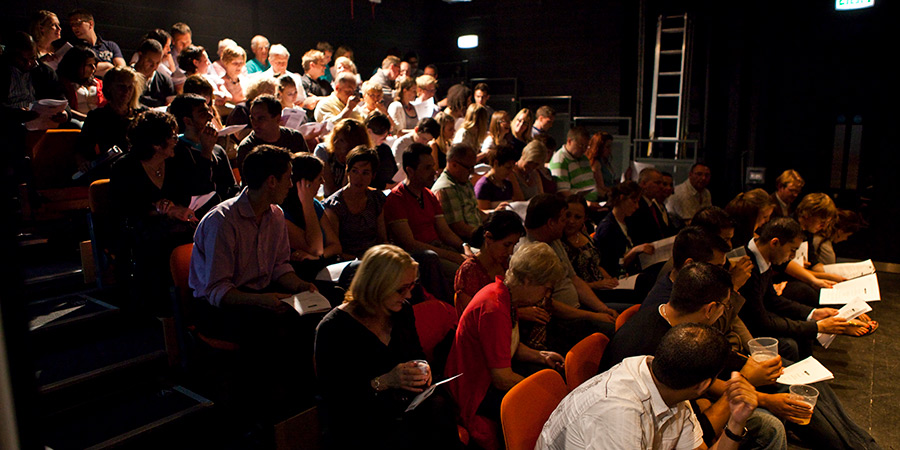
Ah, the Edinburgh Festival Fringe: ready to return to running between venues, zig-zagging the crowds and avoiding Cowgate on a Saturday night? Thank God there are some fantastic shows there to make it all worth it.
And yes, the artists are the ones who really make our Fringe, but there's something else that really helps them on their way: the audience.
I've never performed a show at the Fringe, but I have been in the audience for an absolute ton, and I'll be honest, sometimes we just don't hold up our end of the bargain. We can be good, bad or downright horrendous, and all of those have a big impact on how the show turns out that day: oddly enough, it's not just the act on stage doing all the legwork. We have to put in too!
And so, for all the performers out there who are anxiously awaiting each day's hour of pure judgement, I've put together a checklist of things we can aim to do or not do as audience members to help the artist on stage do their thing:
The golden rule
It's only an hour.
There's not many things in this world that can't wait an hour.
- Phones: Twitter will still be there when we get back.
- Drinks: Leaving the show when there's only 20 minutes left for a bevvie is not cool: it's just disruptive. Late night shows, okay, but at 1:30pm? Nuh-uh.
- Toilet breaks: Mum was right: always have a try beforehand. Obvs, if there's a medical reason, that's fine.
If anything, most shows run slightly under an hour. We got this.
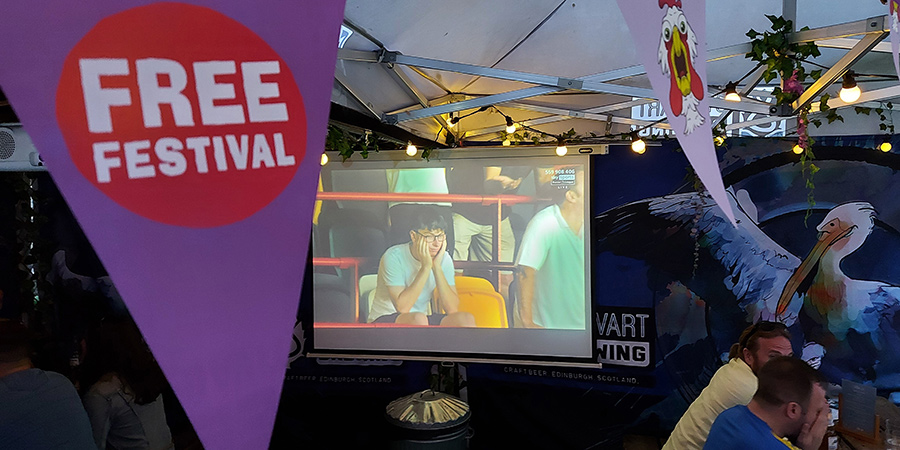
Know your show (a bit)
Take punts on shows you've never heard of, sure, but maybe give it 10 seconds to read the synopsis in the programme or on British Comedy Guide's comprehensive listings. You might realise it's not exactly what you thought, differs from what the title suggests, or it's just not your kind of thing.
A few years ago, Maddie Campion had a show called 20 Uses for a Lovedoll. She had people return flyers because they assumed it was some kind of Spearmint Rhino thing, whilst others left the show because they expected something smutty. The synopsis of the show?: 'Maddie Campion has always wanted to be in a double act. LD, a lovedoll, is tired of being seen as a sex object. Together they create a big, silly sketch show.'
Similarly, gagster Tony Cowards once had a show called Daft Pun, which some people assumed was a Daft Punk tribute act. Oh dear.
It's reasonably rare that a show is a completely different ballgame to its description, but if it is, at least we tried!
Mood/Mental health
I have days at the Fringe when I am just NOT feeling it. I'm tired; my brain is frazzled; I've heard some news from the real world: it can be a LOT, especially if you're spending a while in Edinburgh.
Over the years I've learned that the below options are full-on lifesavers, and I hope they help you out too:
- If you don't already have a ticket (or even if you do), you don't have to see the show. Wait, what? That's an option? Yes! You could see it tomorrow! Or indeed in a few months' time if you're only up for a few days. Many shows transfer to London or tour round the country, so this is likely not your only chance to see it.
- See a different show. If the theme is something that just feels too heavy for you right now (eg. death, abuse, the state of the world, existence and everything) sometimes you're just not in the mood for it. Maybe you'll feel more up for it another day. If you want cheering up, move things around so you see something upbeat instead: it's okay to change your schedule to suit you on the day.
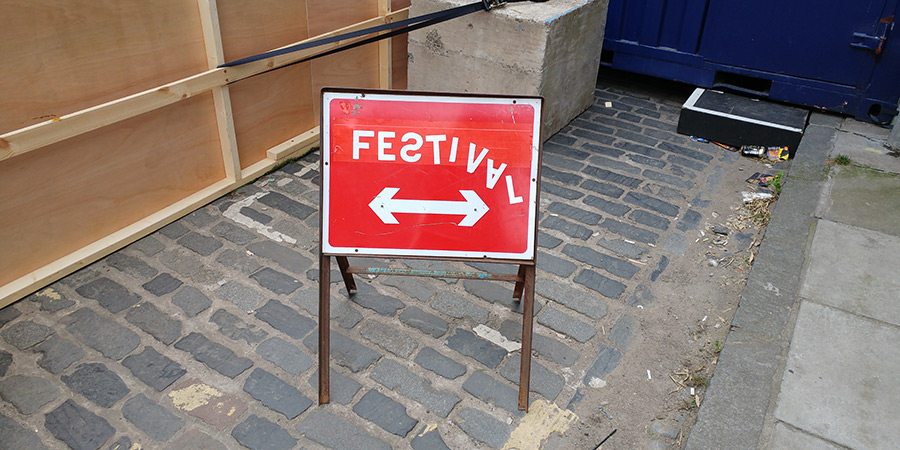
- Have a nap. Naps are a game changer at the Fringe. Plus, falling asleep in a show is the worst. It's awkward for the performer and the rest of the audience, especially if you snore...I get it, those rooms are a like a sauna, but everyone can hear you.
- Have a day off. The Fringe is a constantly stimulating place to be, which can be hugely overwhelming. Stay at home for a day, or go slightly further out of town and do your own thing. Being away from posters and flyerers can make a world of difference.
There's no one special way to do the Edinburgh Fringe; do what feels right for you. You might want to cram in 7 shows a day, but if you won't have the energy to enjoy them, it might not be right for you (I have been that person, and I turned into a Fringe Zombie).
Audience interaction
- Rhetorical questions: Yep, sometimes it is hard to tell if they are genuinely asking you, or if they're leaving a silence. Sometimes that's part of the joke. If it's really very clear, though, don't be the one to ruin a bit for the sake of your own ego.
- Don't heckle out of nowhere for no reason: Like, just fuck off. The rest of the audience thinks you're a dick, as does the person on stage.
- Improv suggestions: A few years ago, I heard from two different people who came out of Paul Merton's Improv Chums feeling disturbed because somebody shouted out 'concentration camps' and 'the Rochdale grooming scandal' as suggestions. The troupe, of course, said it was inappropriate and carried on. It doesn't make you edgy or funny, it just wastes time and makes everyone uncomfortable. Keep it show-appropriate.
- On stage: If a performer gets you up on stage, you are not now the comedian. Get involved, play around, definitely, but do not see it as an opportunity for a new career break. They've chosen you for a reason, probably, and they really need you to trust them.
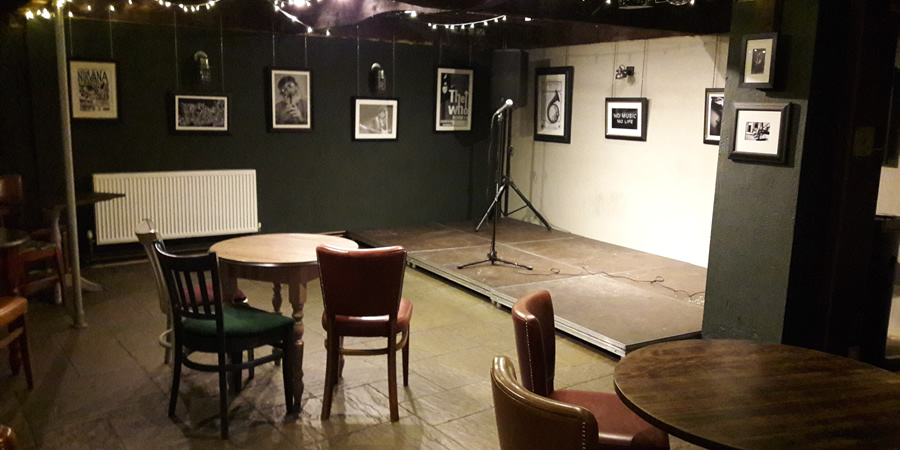
Audience size
There will always be shows at the Fringe that have less than 10 people in them, and I have mixed news for you:
- THE BAD NEWS: If you are in one (which is likely) you do have to work harder.
- THE GOOD NEWS: Some of the best gigs I've ever been to had very small audiences. If you're on board and the performer isn't perturbed, it can be some of the most exciting, Fringe-y hours of comedy you'll ever see.
NOTE TO PERFORMERS: As tempting as it can be, if you do have a small audience, don't give them a hard time for it. It's not their fault there aren't more people, and it does not turn the gig around if you point that out. These are the people who have turned up and showed out for you, they're already likely feeling as embarrassed as you are, so embrace them and make the most of the situation if you can.
Walking out
I get it, sometimes it's necessary, but here are a few tips:
- Boredom is not really an exhaustive excuse for walking out. Remember: it's only an hour. Have some degree of patience. You never know, it might get better!
- Don't assume that everyone around you is having a terrible time just because you are. You could ruin other people's enjoyment by being loud about it, which isn't very nice, is it? Let's be nice, yeah?
- Just drunk: If you and your mates are drunk and just walked into the wrong show, don't sit there and chat with your mates. Leave. It's fine to make a mistake, but we'll all be much happier for it.
- When it's okay: If the material is absolutely abysmal or offensive to you, you are feeling anxious or ill, or have an emergency, obviously it's okay to leave. You don't need to shout at them on the way out; just quickly and quietly make your exit.
- The right moment: NOT during the bucket speech.
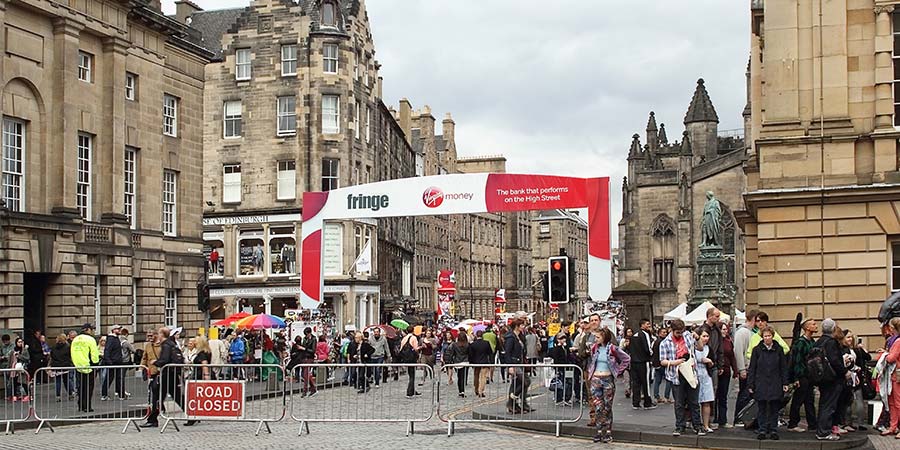
Why does this matter?
1) We're all human.
2) We've come to the biggest arts festival in the world. Chances are we want to see something interesting and entertaining.
3) In no other job would you treat people like that and not get reprimanded. Or punched.
4) No one forces you to spend money on a show. Many of the shows being performed are free. If a show is shit, it could be for all manner of reasons. It's annoying, but move on: there's plenty more to see here.
Fine, you made your point
At the end of a Fringe day, you do tend to feel exhausted. Why? Because, as an audience member, you don't just sit in the dark for an hour: you absorb, you laugh, you feel, you think, you focus. It involves work. It involves energy. A huge amount of shows at the Fringe are asking a bit more of you - the point being that you'll hopefully get a bit more out of it as a result. Not to mention all of the hills, steps and humid, tiring weather.
I know it seems preachy, but 95% of the things in this article are just common courtesy. The other 5% involve a small amount of time and energy that ultimately help you and everyone else have a far more enjoyable experience.
Overall, just have a great time and be nice to others. Find great shows: trawl the show listings and make a spreadsheet; read reviews and Twitter recommendations; ask other people what you should see; take a chance last minute using the 'nearby now' section of the EdFringe mobi- okay, apparently not that last one...but either way, gems are to be found everywhere, and even more so if we do our bit as audience members.
Help British comedy by becoming a BCG Supporter. Donate and join us in preserving, amplifying and investing in comedy of all forms, from the grass roots up. Advertising doesn't cover our costs, so every single donation matters and is put to good use. Thank you.
Love comedy? Find out more
